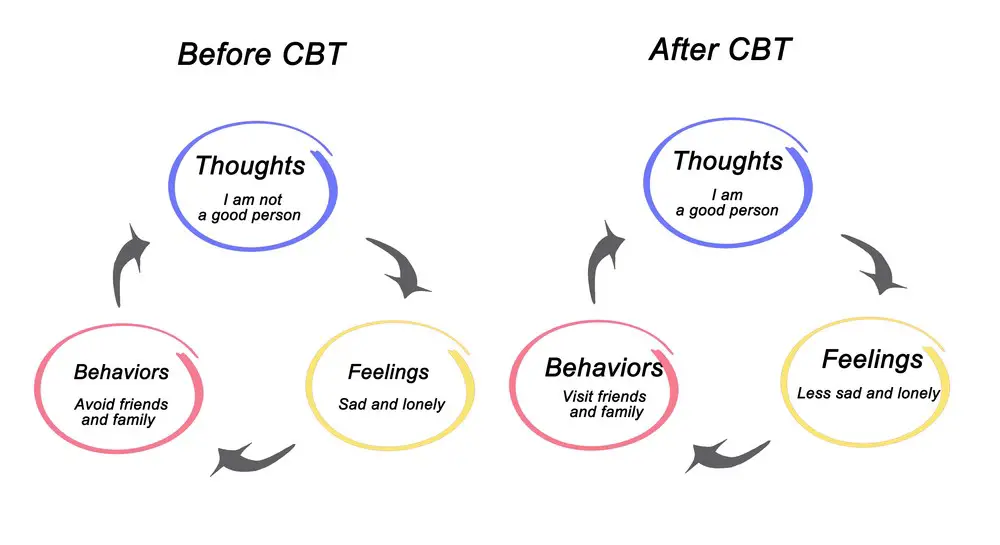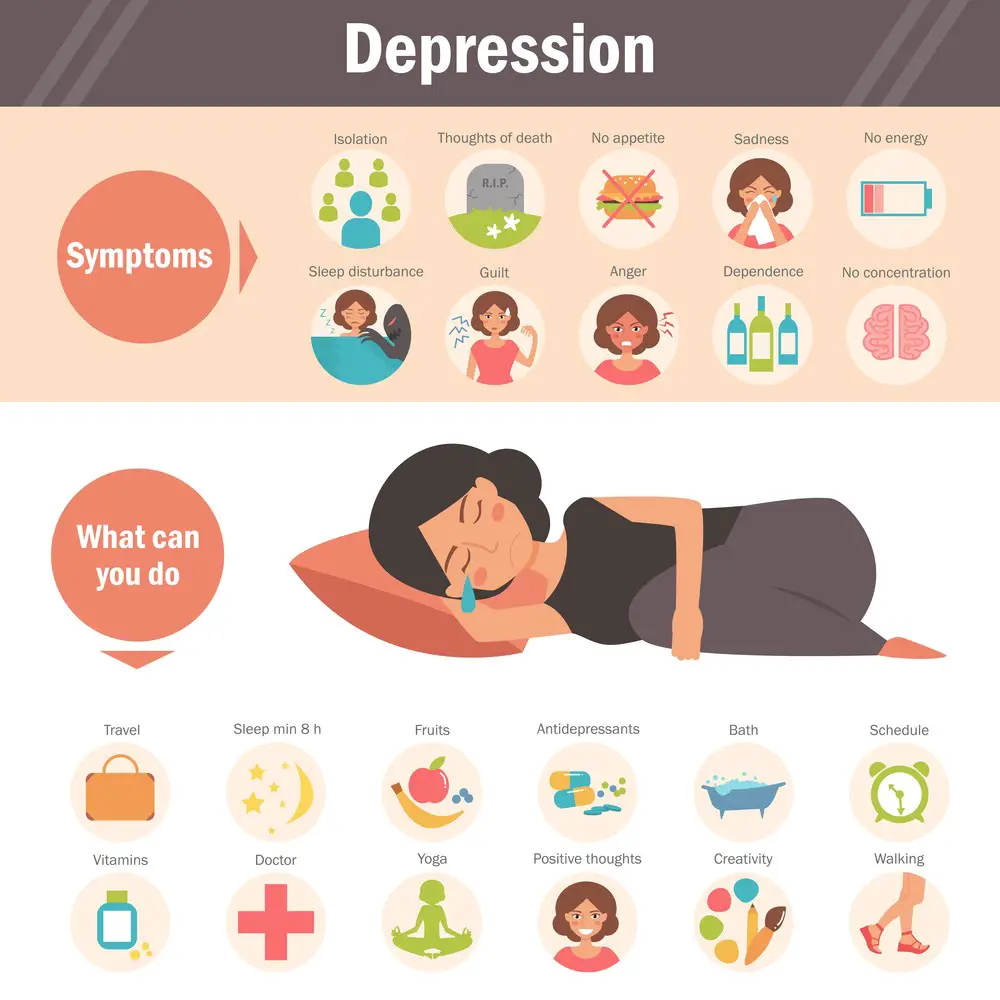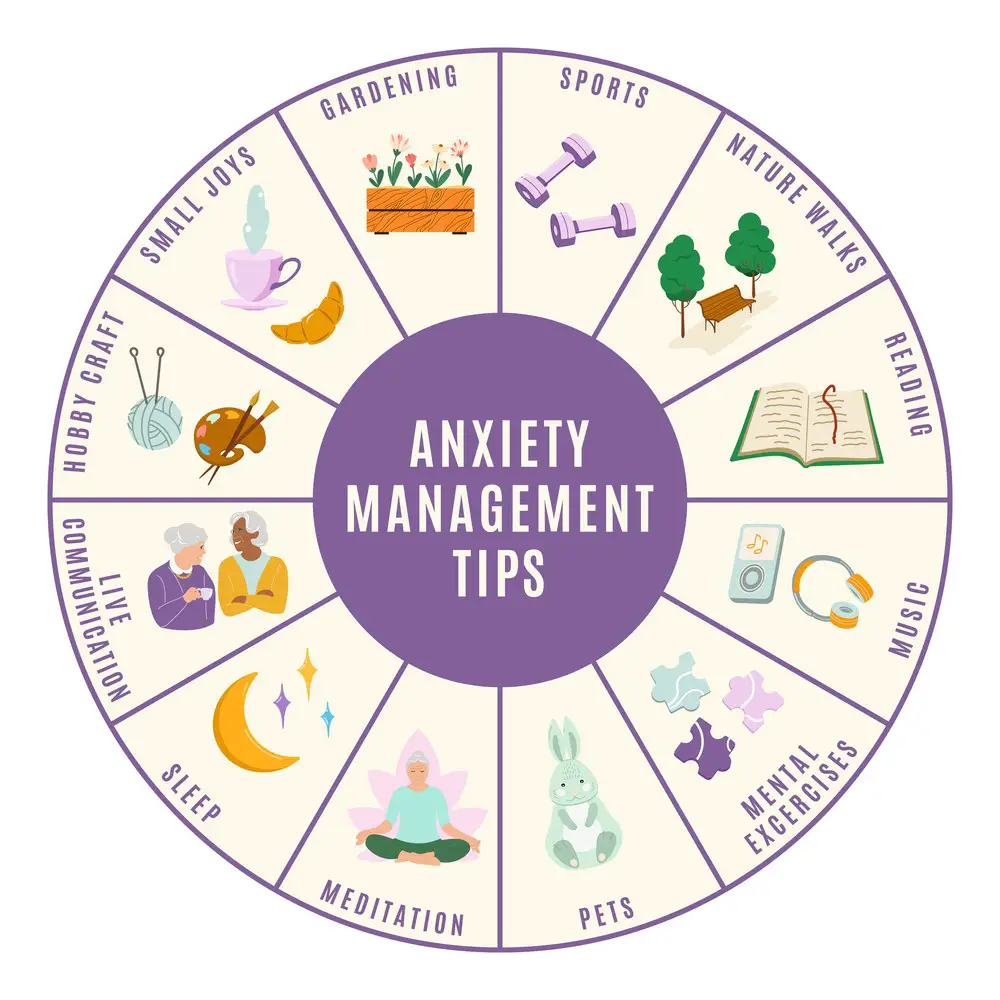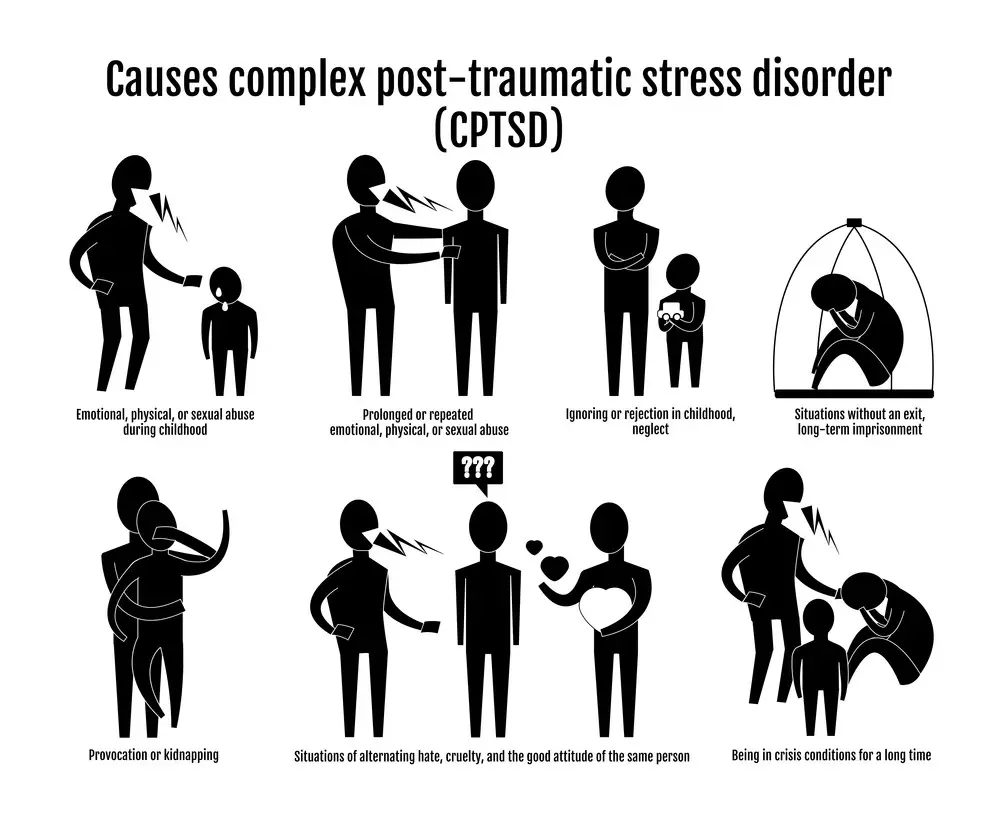As a BetterHelp affiliate, we receive compensation from BetterHelp if you purchase products or services through the links provided
Trauma therapy is a highly effective psychotherapeutic approach that enables individuals to confront the debilitating impacts of traumatic events. Through this process, people can gain a profound insight into and effectively cope with the long-term consequences of trauma. Traumatic experiences can encompass many events, ranging from severe accidents, natural disasters, and violent acts to emotional abuse, neglect, and other deeply distressing encounters.
The duration of trauma therapy varies greatly from person to person, as it depends on factors such as the severity of the trauma, the individual’s unique response to therapy, and how they progress through the treatment stages. Generally, treatment may last from several weeks to months or even longer. It’s essential to understand that healing from trauma is a gradual and highly personal process that usually unfolds in stages.
Key Takeaways
- Trauma therapy assists in managing the impact of traumatic events and processing the lasting experiences.
- The duration of therapy varies depending on individual circumstances and progress.
- Healing from trauma is a gradual, personal process that unfolds in stages.
 Understanding Trauma Therapy
Understanding Trauma Therapy
Trauma therapy is a form of psychotherapy designed to help you manage the impact of traumatic events on your life. It’s essential when overcoming emotional responses caused by traumatic experiences, including serious injury, sexual violence, life-threatening events, chronic abuse, and neglect. Over 50% of people experience at least one trauma in their lives; trauma therapy aims to help you process these events and the lasting impact they may have on your mental health.
There are different types of trauma therapy, such as trauma-focused therapy and trauma-informed care, which all fall under the broad umbrella of trauma therapy. Each therapeutic approach has its methods and techniques, but they all share the goal of helping you heal from the effects of traumatic events.
When you participate in trauma therapy, your therapist may employ techniques to help you process your experiences, such as deep breathing exercises, meditation, progressive relaxation techniques, tai chi, and yoga. These methods are designed to relax your nervous system and allow your brain to process traumatic stress more effectively.
Trauma affects the brain’s amygdala, hippocampus, and prefrontal cortex, which can experience lasting changes in those who undergo traumatic stress. The primary goal of trauma therapy is to address and alter these changes, ultimately helping you move forward with your life.
The duration of trauma therapy can vary significantly from one person to another. It may depend on factors such as the severity of the trauma, the individual’s support system, and their commitment to the therapeutic process. In some cases, treatment may last for 20 to 30 sessions over six months or even more, allowing patients to achieve complete symptom remission and develop the skills needed to maintain their progress.
In the end, understanding trauma therapy is essential for those who have experienced traumatic events and are seeking support for their healing journey. As you explore the different options, finding a therapeutic approach that resonates with you and addresses your individual needs is crucial ensuring the best possible outcome on your path to recovery.

Types of Trauma Therapy
Various types of trauma therapy can help you process and overcome traumatic experiences. In this section, we will discuss some of the most common and effective approaches, including Eye Movement Desensitization and Reprocessing (EMDR), Cognitive Behavioral Therapy (CBT), Exposure Therapy, Trauma-Focused Cognitive Behavioral Therapy (TF-CBT), and Dialectical Behavior Therapy.
Eye Movement Desensitization and Reprocessing (EMDR)
EMDR is a relatively new therapy that has shown promising results for individuals dealing with trauma. This technique involves processing distressing memories by encouraging rapid eye movements and experiencing positive associations. Through this process, EMDR can help you change how you interpret and react to your traumatic memories.

Cognitive Behavioral Therapy (CBT)
CBT is a well-established therapy that identifies and restores negative thought patterns, emotions, and behaviors. With the guidance of a therapist, you’ll learn to recognize the thoughts and beliefs that may be contributing to your trauma symptoms and develop healthier ways of coping with them.
Exposure Therapy
Exposure therapy is a type of treatment that involves gradually and systematically facing your feared or traumatic situations. This therapy comes in two forms: Prolonged Exposure (PE) and Cognitive Processing Therapy (CPT). PE helps you confront your traumatic memories and emotions in a controlled environment, while CPT involves working through your thoughts and feelings associated with the traumatic event.
Trauma-Focused Cognitive Behavioral Therapy (TF-CBT)
TF-CBT is a special adaptation of CBT that addresses the unique challenges trauma survivors face. This treatment involves exposure techniques, cognitive restructuring, and stress management skills development. TF-CBT aims to help you understand the connections between your thoughts, feelings, and behaviors related to the traumatic event and learn new coping strategies.

Dialectical Behavior Therapy
Dialectical Behavior Therapy is another form of therapy that can be effective for individuals dealing with trauma, particularly those struggling to regulate their emotions. This approach combines mindfulness, emotional regulation, and interpersonal effectiveness skills to help you manage your feelings and improve your relationships with others.
In conclusion, it’s essential to remember that each person’s experience with trauma is unique, and the most effective therapy will depend on your individual needs and preferences. A skilled mental health professional can help you determine the type of trauma therapy most suits your situation.

Role of the Therapist in Trauma Therapy
In trauma therapy, the therapist’s role is to provide a supportive and safe environment to help you process and overcome traumatic experiences. As mental health professionals, they are knowledgeable in various therapeutic techniques that can assist in your healing journey.
Your therapist is there to listen and empathize with what you have experienced. They understand trauma’s impact on your life and recognize the importance of addressing it carefully. The therapeutic relationship creates a sense of trust and safety that allows you to share your story openly.
As a counselor, your therapist will guide you in understanding the effects of your trauma and teach you how to manage your emotions and cope with triggers. They may use different therapeutic approaches, such as Prolonged Exposure (PE), where you gradually face the source of your fear or other trauma-focused therapies that help you process the traumatic event.
In addition, your therapist will likely help you develop skills to maintain your progress in therapy. This might involve teaching you relaxation techniques, cognitive restructuring methods, or other strategies to build resilience and prevent relapse.
Throughout your trauma therapy, the therapist’s role cannot be overemphasized. Their support, expertise, and dedication to your well-being will be crucial in your healing process. Remember, finding the right mental health professional for you is key, so feel free to explore different options until you find a therapist that makes you feel comfortable, understood, and supported on your journey.
Duration of Trauma Therapy
The duration of trauma therapy can vary depending on the individual and the nature of the traumatic event. It’s essential to recognize that each person’s path to healing is unique, and there’s no one-size-fits-all approach to treatment.
In many cases, trauma therapy is considered a short-term therapy. For example, Trauma-Focused Cognitive Behavioral Therapy (TF-CBT) typically lasts between 12 to 25 sessions. This therapy involves gradually exposing you to thoughts, feelings, and situations related to your trauma, which helps you learn to cope with your emotional response.
However, some people may require longer treatment durations to achieve complete symptom remission and to feel confident in the skills needed to maintain treatment gains. Patients and therapists may prefer to continue treatment over longer periods, such as 20 to 30 sessions over six months.
It’s also essential to understand that treatment length is often tentative and revisited throughout treatment. Therapists may conduct several assessment or evaluation sessions before suggesting a treatment plan or requesting a trial length of treatment. Your treatment needs will be reassessed at this time, and the duration might change accordingly.
To sum up, the duration of trauma therapy can range from short-term therapy, such as 12 to 25 sessions in the case of TF-CBT, to longer periods extending over several months. It’s crucial to recognize that treatment durations are individualized and may change based on your unique needs and progress toward healing.

Progress in Trauma Therapy
The journey of healing through trauma therapy is unique for each person, and the time required to make significant progress will vary. Focusing on your goals and taking small steps to achieve them during therapy sessions is essential.
During trauma therapy, you’ll be working with your therapist to manage the impact of traumatic events on your life by processing the experiences and emotions associated with these events. This will help you recognize patterns, build resilience, and develop new coping mechanisms.
It’s important to remain patient and give yourself the time and space to process your emotions fully. Progress can be gradual, and there may be setbacks along the way. Remember to celebrate smaller milestones, as they signify that you are moving towards healing and growth.
Trauma therapy usually involves weekly or bi-weekly sessions, but more frequent sessions may be required depending on your specific needs and goals. Remember that individuals with co-occurring conditions or specific personality difficulties might need longer treatment periods, ranging from 12 to 18 months, for therapy to be effective.
In conclusion, the pace of progress in trauma therapy will depend on your personal goals and unique experiences. Acknowledge that setbacks are a normal part of the healing process, and continue to work with your therapist to overcome obstacles and significantly improve your emotional well-being. Remember to be supportive and compassionate towards yourself as you navigate this recovery journey.
Effects of Severe Traumas
Severe traumas can have long-lasting impacts on your mental health. The effects can manifest in various ways, and treatment duration for trauma therapy may differ accordingly. This section explores a few common conditions that may arise from severe traumas.

Post-Traumatic Stress Disorder (PTSD)
PTSD is a mental health condition triggered by experiencing or witnessing a terrifying event, such as violence, abuse, neglect, or the death of a loved one. PTSD can cause flashbacks, nightmares, and severe anxiety. You might find it difficult to go about your daily life due to recurring memories and a sense of constant alertness. Trauma therapy can be vital in managing PTSD symptoms and helping you regain control.
Addiction
Severe traumas can sometimes lead to addiction, as you might turn to substances or behaviors to cope with overwhelming emotions. Alcohol and drug addiction or compulsive behaviors like gambling can affect your physical and mental well-being. In such cases, trauma therapy works in tandem with other treatments to address the underlying issues and promote healthy coping mechanisms.

Depression and Anxiety
Experiencing severe trauma can significantly increase your risk of developing depression and anxiety disorders. You may struggle with feelings of hopelessness, guilt, and persistent sadness. Anxiety disorders can manifest as excessive fear, worry, or panic. Trauma therapy can help you identify triggers and develop strategies to manage the effects of severe trauma on your mental health.
Eating Disorders
Severe traumas may contribute to developing eating disorders like anorexia nervosa, bulimia nervosa, or binge-eating disorder. You might use food to exert control or numb emotions, severely affecting your physical and emotional health. Trauma therapy can be essential in addressing the complex relationship between trauma and disordered eating patterns and support your journey toward healing.
Remember, the duration of trauma therapy can vary depending on the severity of the trauma and the associated conditions. Working with a mental health professional can help you navigate the healing process and achieve a healthier, more balanced life.

Self-Care and Coping Skills for Trauma
Taking care of yourself is essential in the healing process after experiencing trauma. Self-care involves nurturing your physical, emotional, and spiritual well-being. Here are some strategies you can use to support your recovery:
Physical Self-Care: Prioritize your physical health by engaging in activities that benefit your body. Get enough sleep, eat a balanced diet, and exercise regularly. Remember, a healthy body can help you manage the emotional aspects of trauma.
Emotional Self-Care: Allow yourself the space to express your emotions. This can be done through journaling, talking to a trusted friend or therapist, or participating in support groups. Don’t be afraid to seek professional help when needed.
Develop Coping Skills: Learn effective coping skills to deal with stress and anxiety caused by the traumatic event. Techniques such as deep breathing, muscle relaxation, mindfulness, and visualization can help manage emotions and build resilience.
Expand Your Support System: Surround yourself with people who care about your well-being. Reach out to friends, family members, or support groups where you can share your feelings and experiences without judgment.
Practice Resilience: While the healing process takes time, practicing resilience helps you adapt to adversity and bounce back from traumatic events. Remember your strengths and accomplishments, and don’t be afraid to ask for help when necessary.
By incorporating these self-care strategies and coping skills into your daily routine, you’re taking important steps toward overcoming the effects of trauma. Remember, healing takes time, and you must be patient with yourself as you navigate this journey.

Impact of Support Systems in Trauma Therapy
A strong support system is crucial to your healing journey when undergoing trauma therapy. Your support system includes family, friends, colleagues, and professionals such as therapists or counselors. The presence of these people in your life provides emotional encouragement, practical assistance, and a sense of belonging, which significantly contributes to your overall recovery process.
The effectiveness of trauma therapy can vary depending on the individual’s support system and coping mechanisms. The therapeutic process might be quicker for those with robust support systems and adaptive coping skills. On the other hand, individuals who lack support or have maladaptive coping strategies may require a longer duration to address their trauma effectively.
It’s important to remember that each person experiences and responds to trauma differently. Therefore, the amount of time needed for trauma therapy may differ from one person to another. By surrounding yourself with people who understand and care for you, the speed and quality of your healing process can be significantly improved.
As you embark on your journey through trauma therapy, try to:
- Build a network of people who can offer you emotional and practical support. This can include connecting with others who have experienced similar situations.
- Communicate openly with your support system. Share your emotions, challenges, and progress as you work through trauma therapy.
- Seek professional help when necessary. A therapist or counselor trained in trauma-focused therapy can provide valuable guidance and assistance.
By cultivating a strong support system, you enhance your emotional well-being and create a solid foundation for your healing journey in trauma therapy. Remember, healing from trauma is a process; having a supportive network can make all the difference in your recovery.
Achieving Control and Maintenance
Taking control of your trauma recovery is crucial to healing and maintaining a sense of well-being. The length of trauma therapy may vary depending on individual circumstances, ranging from a few months to several years. It’s essential to recognize that each person’s journey is unique, and there’s no set duration for the healing process.
A key aspect of recovery is accessing mental health resources to guide and support you throughout your journey. These resources might include therapy, support groups, or self-help materials. Investing time and energy in the right tools will help you achieve long-lasting results and maintain progress in overcoming trauma.
Remember to be patient with yourself and acknowledge your small steps toward control and maintenance. It’s normal to have setbacks, but it’s essential to keep pushing forward and seeking the support you need. Doing so creates a foundation for lasting change and a healthier, happier future.

Unraveling the Path to Healing: Recognizing the Need For Trauma Therapy
Recognizing the need to start or continue trauma therapy is essential for healing. Here are some tips to help you understand when you might need to engage in or persist with trauma therapy:
- Persistent Symptoms: If you find that symptoms like anxiety, depression, flashbacks, or nightmares are not subsiding, it may be an indication that trauma therapy is needed.
- Difficulty in Daily Functioning: Struggling with daily activities, work, or relationships might mean that professional intervention could be beneficial.
- Physical Reactions: Trauma can manifest physically. If you experience unexplained aches, fatigue, or other bodily reactions, therapy may help you understand and alleviate these issues.
- Self-Destructive Behavior: Engaging in harmful behaviors like substance abuse or self-harm is a sign that professional help is needed.
- Feelings of Detachment: If you feel disconnected from others or numb to your emotions, trauma therapy can help you rebuild those connections.
- Avoidance of Triggers: If you find yourself avoiding places, people, or things that remind you of the traumatic event, it might be time to consider therapy.
- Progress Plateau: If you are already in therapy and notice that your progress has stalled or regressed, it may be a sign that continued or intensified therapy is required.
- Seek Professional Evaluation: If in doubt, a mental health professional can assess your situation and recommend the right action.
- Trust Your Intuition: Your feelings and instincts about what you need for healing are valid. Don’t hesitate to seek it out if you feel that you could benefit from therapy.
Remember, it’s always advisable to consult with a mental health professional, as they can provide a tailored treatment plan that aligns with your specific needs and trauma history. Healing from trauma is a unique and personal journey; professional guidance can offer support and direction tailored to your circumstances.
Navigating the Healing Journey: Recognizing When to Embark on Trauma Therapy
The journey toward healing from trauma can be complex and highly personal. Knowing when to seek professional help and how to make the most out of therapy. Here are some essential tips for success:
- Identify the Signs: Recognize the symptoms of unresolved trauma, such as anxiety, depression, flashbacks, or intrusive thoughts. These may be indications that professional therapy is needed.
- Choose the Right Therapist: Look for a mental health professional specializing in trauma therapy, ensuring they are equipped to understand and help with your needs.
- Set Clear Goals: Understanding what you want to achieve in therapy can guide the process and keep you focused on healing.
- Commit to the Process: Healing takes time and effort. Be patient with yourself and stay committed to the therapy process, even when it becomes challenging.
- Build a Support System: Let friends and family know about your therapy journey, and ask for their support when needed. Surrounding yourself with understanding people can make a big difference.
- Embrace Self-Care: Alongside therapy, engage in activities that nurture your well-being. This might include hobbies, exercise, meditation, or spending time with loved ones.
- Communicate Openly with Your Therapist: Don’t hesitate to share your feelings and thoughts with your therapist. Open communication is vital for successful therapy.
- Evaluate Progress Regularly: Regularly assess your progress with your therapist, and be open to adjusting your treatment plan if necessary.
- Recognize that It’s a Process: Healing from trauma doesn’t happen overnight. Understand that it’s a gradual process that unfolds in stages, and that’s perfectly okay.
Trauma therapy is a personal journey, and these tips are general guidelines. Always consult with a mental health professional for tailored support and treatment.
Frequently Asked Questions

How long does it take to recover from childhood trauma?
Recovering from childhood trauma varies greatly from person to person and depends on factors such as the severity, the individual’s response, and the support they receive. Some people may recover in a few months, while others may take years or even a lifetime. Therapy and support from loved ones can greatly improve the recovery process.
What is the duration of therapy for complex PTSD?
The duration of therapy for complex PTSD (C-PTSD) also varies based on the individual’s needs and the severity of their symptoms. C-PTSD often requires long-term therapy, typically resulting from long-lasting, repeated trauma. Treatment can take several months to a few years, depending on the specific circumstances.
How many sessions are needed for trauma counseling?
The number of sessions needed for trauma counseling depends on factors such as the individual’s needs, the specific trauma, and the therapy approach used. It can range from a few sessions to a much longer-term therapy plan consisting of dozens of sessions. Your therapist will work with you to create a tailored treatment plan suited to your needs.
How long is therapy for depression and anxiety?
Therapy for depression and anxiety typically requires a few months to a year for significant improvement. However, the specific duration depends on the severity of the symptoms and the individual’s response to therapy. Some people may benefit from short-term therapy, while others may require ongoing support for longer.
What is the time frame for effective PTSD therapy?
Effective PTSD therapy can take several weeks to a few months to show significant improvement, but the time frame varies depending on the individual and their situation. Some individuals may see improvements within a few sessions, while others may require continued therapy for a longer period to achieve lasting results.
How many therapy sessions are generally required?
The number of therapy sessions required depends on the individual, the type of therapy used, and the specific issue being addressed. Some people may require just a few sessions, while others may need long-term therapy lasting months or years. Your therapist will assess your situation and recommend an appropriate treatment plan based on your needs.
What is the difference between PTSD and C-PTSD?
Post-Traumatic Stress Disorder (PTSD) and Complex Post-Traumatic Stress Disorder (C-PTSD) are related but distinct mental health conditions, often related to trauma. Here’s a look at the key differences:
PTSD (Post-Traumatic Stress Disorder):
- Cause: PTSD can develop after a single traumatic event or a series of isolated incidents. Examples include a car accident, natural disaster, or sudden loss of a loved one.
- Symptoms: Symptoms of PTSD include reliving the traumatic event through flashbacks or nightmares, avoidance of situations that recall the trauma, negative changes in thoughts and mood, and alterations in arousal and reactivity (such as irritability or difficulty sleeping).
- Treatment: Treatment typically focuses on the specific trauma and its immediate effects, using therapies such as Cognitive-Behavioral Therapy (CBT) or Eye Movement Desensitization and Reprocessing (EMDR).
C-PTSD (Complex Post-Traumatic Stress Disorder):
- Cause: C-PTSD results from prolonged, repeated exposure to trauma, often occurring over months or years. It’s frequently associated with ongoing abuse, neglect, or domestic violence.
- Symptoms: In addition to symptoms similar to PTSD, C-PTSD includes more complex problems such as difficulty with emotional regulation, negative self-perception, difficulty with relationships, and a distorted perception of the perpetrator (e.g., attributing total power to them). Dissociation is also more common in C-PTSD.
- Treatment: Therapy for C-PTSD may be more prolonged and complex, often focusing on building trust and safety, improving relationships, and addressing deep-seated beliefs about oneself and others.
While PTSD typically stems from single or isolated traumatic events, C-PTSD is associated with chronic, repeated trauma. C-PTSD involves a broader range of symptoms that may require more extensive therapy tailored to the individual’s unique experiences and needs. Both conditions are serious and warrant professional assessment and treatment to aid in recovery.
About the Author: Jacob Maslow – A Journey Through Mental Health and Healing
I’m Jacob Maslow, a writer, mental health advocate, and someone who knows the struggles of dealing with trauma all too well. As someone who takes Lexapro to manage my mental health, I’ve also become a therapy veteran, exploring various aspects of mental health care.
My personal experiences with mental health are not isolated. I’ve been through an agonizing court battle that has been ongoing for years, battling an ex suffering from severe narcissism. She’s consistently broken court orders, refusing to allow me to communicate with our two minor kids or comply with custody arrangements. Despite previously having a close relationship for years with my children, this ordeal has taken its toll.
Every day, I take long walks to clear my head, finding solace in nature and movement. But I also take action. I write articles about mental health and narcissism to help others dealing with similar challenges, including those who face a spouse who weaponizes children rather than co-parenting. Through my legal site, I strive to assist others struggling with non-compliance with court orders.
Believing that anyone can overcome their mental health issues, I share my journey, insights, and tools to navigate the complex paths of mental wellness. Writing this blog post on “How Long Does Trauma Therapy Take?” is a part of my commitment to shedding light on the therapeutic process and its intricacies. It’s a subject close to my heart and one that I hope will resonate with and help many readers.
This site contains affiliate links to products. We will receive a commission for purchases made through these links.


 Understanding Trauma Therapy
Understanding Trauma Therapy
